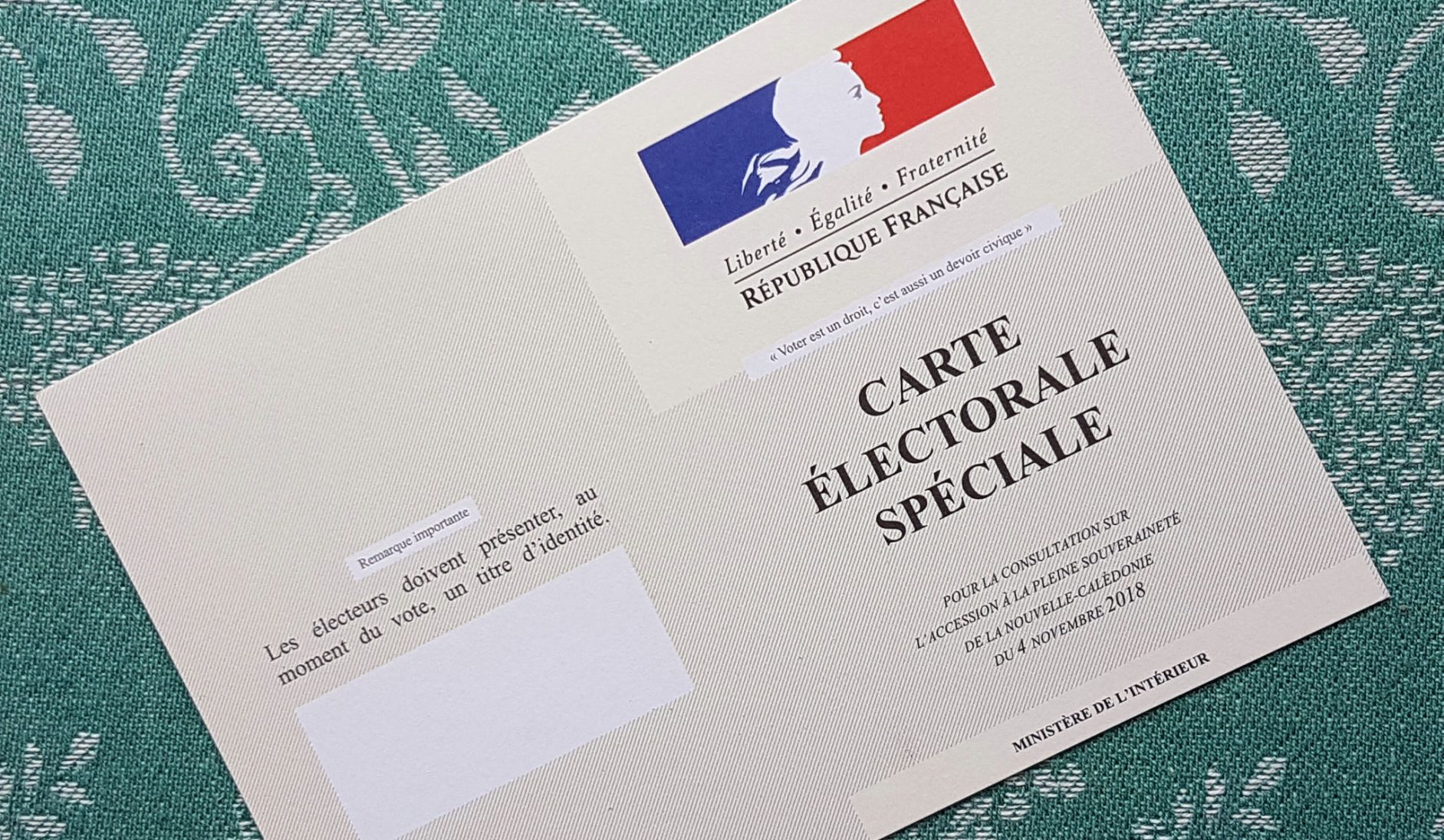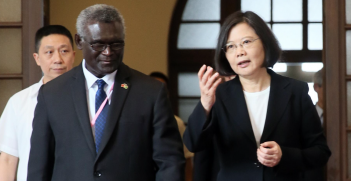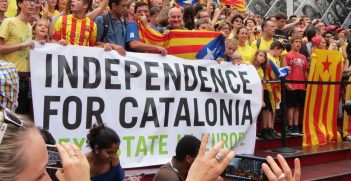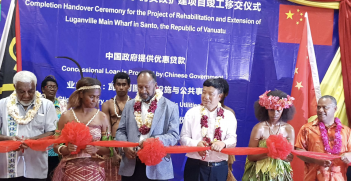New Caledonia’s Independence Referendum

Viewed by many as a status quo result, the increasing support for pro-independence parties was much too close for comfort for the French Government and will oblige it to reconsider its strategies.
The independence referendum in New Caledonia this week saw what many believed to be a pretty clear statement of the 30 year status quo: around a 60-40 percentage split against independence.
In fact, the split was 56-44 against.
Not what the papers would have you believe
That might not seem much of a difference, but in fact it was a real shock for the anti-independence side as it showed an advance for the pro-independence vote well beyond what was expected and a long way beyond pre-vote predictions of a collapse in pro-independence voting down to 65-35 or even less. The independence parties had set a bar of 40 for their score, and thus well exceeded that. A 44 percent vote for independence is a lot more serious than 35 percent, both for France and the opposing parties.
The result has galvanised the independence movement, which see it as a victory, and will oblige the French Government to reconsider its strategies. Prime Minister Philippe has accordingly called a new meeting for all principals in Paris in December.
So, what happened?
The New Caledonian electorate is a fundamentally divided one. On one hand, the independence side is made up largely of Melanesians (“Kanaks”); they are about 40 percent of the population. The other side (calling themselves “Loyalists”) are the descendants of French settlers, also about 40 percent, plus a further 20 percent of recent immigrants, mainly Wallisian and other Polynesians. This latter group came to New Caledonia as workers for French settlers and businesses: they have usually seen their future as depending on the flow of French business and money and so have consistently voted against independence. Hence the historic 60-40 permanent majority in favour of French sovereignty. That now seems to be shifting.
The driving force of New Caledonia is that these two sides live on quite different planets in four basic respects: ethnic, geographic, economic and emotional:
- Ethnic: with Melanesians on one side, French European and their Polynesian workers on the other.
- Geographic: the vast majority of the Kanaks live outside Noumea, especially in traditional areas of the East coast and the Loyalty Islands. Europeans live in Noumea and its suburbs.
- Economic: European Caledonians have a very high standard of living (they need to, given the astronomic prices which this rentier economy produces). Kanaks do not.
- Emotional: the French identify strongly as French, of course, but perhaps exaggeratedly so in the manner of colonial outposts everywhere in history. The Kanaks identify with their land, custom and traditions linked to their home lands, nowadays almost entirely outside Noumea.
For these four reasons the two sides live completely different lives, react to different motivations and hardly ever see each other. This was very clear during the referendum campaign.
The Loyalist parties campaigned essentially on fear: fear of economic catastrophe if France left, fear of ensuing ethnic strife, fear of evil foreign takeovers (this last used to be code for Australia, now it’s China). The Kanak parties campaigned on issues of land and identity dear to Melanesians. These two ships do not usually even pass in the night.
Thus the status quo, with the Kanak areas voting massively for independence and by huge majorities of up to 95 percent. Equally, Noumea and the suburbs of Dumbea and Mont Dore voted hugely against, also by up to 95 percent.
The new outlook
So what changed this time to produce a rather new outlook from the 30 year stand off?
First, it seems there has indeed been some movement in voting patterns. The Kanak parties have greatly modified their program in recent years and gained votes. Instead of limiting themselves to Kanak identity issues to the exclusion of everything and everyone else, they now seek to appeal more broadly, no longer just to Kanak sovereignty but to a multicultural community of all races. This appealed to the youth vote in Noumea and reassured at least a part of the Polynesian communities hitherto scared of what a Kanak victory might mean for their work permits in New Caledonia.
Second, the Kanak leaders were much more successful than expected in getting the younger generation to vote. Loyalists had been claiming that young Kanaks were not interested in all that stuff. Wrong.
Third, the Kanak parties have moderated their stand on France. Whereas in earlier days they took a hard line on French colonialism and wanted France out, these days their program calls for continued “association” with France and certainly not a complete withdrawal. This goes a good way to keeping the French State, if not onside, then at least less hostile. Make no mistake, France seeks to do whatever it can to keep New Caledonia in the fold.
What now?
The French State seems primed to make another intervention. It was after all French statesmanship which brought about the Accords of 20 and 30 years ago, thanks to the great foresight and generosity of then Prime Minister Rocard, assisted by two remarkable French bureaucrats Alain Christnacht and Thierry Lataste. Interestingly, Chistnacht, who actually wrote the Accords, is still in the picture as a Conseiller d’Etat and Lataste is none other than the current French High Commissioner, that is the Governor, of New Caledonia. Reading the tea-leaves from the just concluded visit by Prime Minister Philippe, his decision to call the meeting of participants in December seems to imply that the French State will be putting more cards on the table. Christnacht speculated openly this week that the territory might be given further autonomy “along the lines of a US state”.
The French need to hurry along to get new understandings in place: the next Territorial elections will be in May 2019 and could complicate, or envenom, any further political dialogue. The right will no doubt call for a new electoral list to include more recent French immigrants in the voting rolls; no guesses which party that might benefit. And the Loyalists will try to press the idea that this referendum has settled the New Caledonia question once and for all, and there is therefore no need to go to the further two referenda foreshadowed in the Accords for 2020 and 2022. Marine Le Pen has already got onto this bandwagon. Abandoning the future referenda would be a circuit breaker for the Kanaks, but fortunately Philippe has already rejected it.
Instead, the French State will probably work on new economic measures to try to balance New Caledonia’s profound inequities a bit better in favour of the Kanak side of the population. The right, on the other hand, will look very coolly at any diminution of their extensive privileges. They might even have to pay tax, now only tiny.
So this referendum, with its double “victories” for both sides, should see a new effort by France to move the process of self-determination further along. There may be some new proposals for institutional reform, even a changed Statute. But the main thrust for the moment is likely to be on the economic, financial and welfare fronts. The Kanaks will welcome this a good deal more than the Loyalists.
For France, reaching a 44 percent score in the pro-independence vote this time around is much too close for comfort, with the real prospect that future votes will go closer still.
William Fisher is a former Australian diplomat now based at the ANU College of Diplomacy. He is a former Ambassador to France and Consul in New Caledonia.
This article is published under a Creative Commons Licence and may be republished with attribution.





